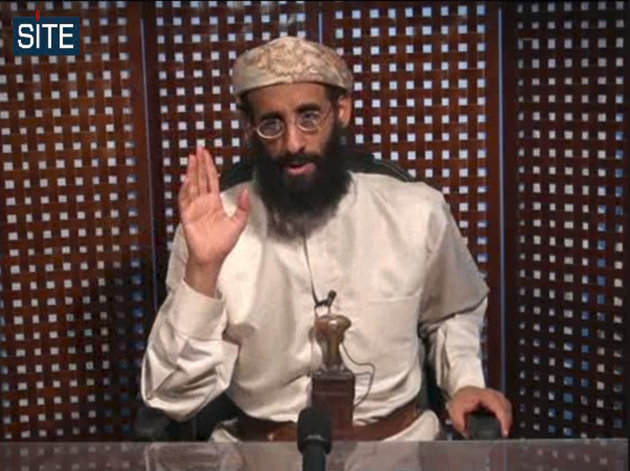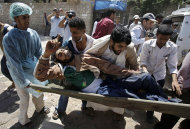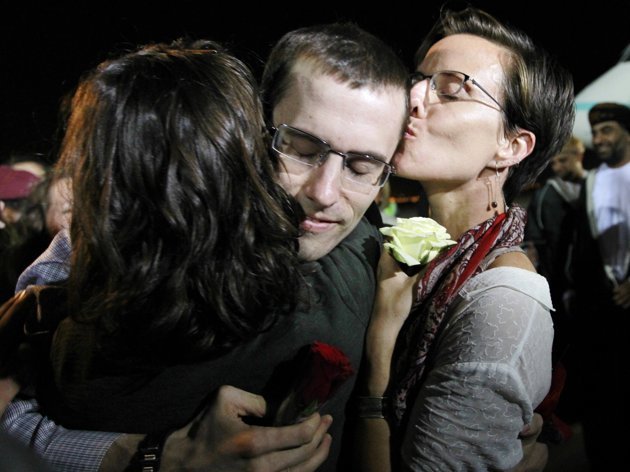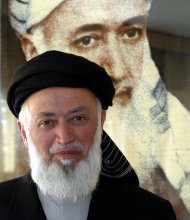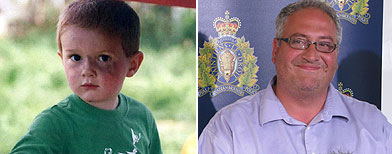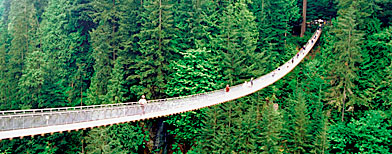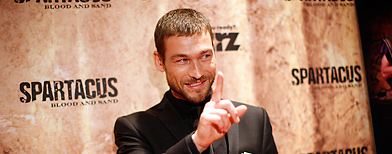
Syrian security forces shot dead three protesters calling for the overthrow of President Bashar al-Assad and clashes continued in the center of the country between insurgents and loyalist forces, activists said.
Government troops have been battling opponents including army defectors and gunmen in the town of Rastan in the first prolonged armed confrontation since protests erupted against Assad six months ago.
The state news agency said seven soldiers and police were killed in the operation against "terrorists" in Rastan and another 32 were wounded, adding that the army had "inflicted big losses on the armed terrorist groups."
Activists reported attacks on army roadblocks in the nearby town of Talbiseh and said clashes continued in Rastan, prompting defiant calls at demonstrations where tens of thousands of people marched against Assad.
"Rastan is the bastion of free men, despite you, Bashar," proclaimed a sign carried by protesters in the northern province of Idlib. "Bashar get off our backs, Syria wants freedom," demonstrators shouted in Homs.
The United Nations says 2,700 people have been killed in Assad's crackdown on mostly peaceful protests, one of the highest death tolls in the wave of revolts which has toppled three Arab leaders this year.
Western powers have responded with sanctions on Syria's oil exports, forcing Assad's government to curb imports to protect its foreign reserves and adding to economic pressures after the collapse of tourism revenues and a slump in trade.
Assad retains control over most of the military and security forces but army deserters, many of whom are reported to have defected because they refused to shoot at protesters, have formed rebel units in areas around Rastan, a town of 40,000 people which lies 180 km (110 miles) north of Damascus.
One army defector operating in the province of Idlib, northwest of Rastan, said the defectors in the town were using guerrilla tactics against the heavily-armed loyalist forces.
"Rastan has been churning out army officers for decades and there is a lot of experience among the defecting soldiers. Assad is mistaken if he thinks that he can wrap up the attack quickly," he said, adding that the agricultural terrain made it difficult for the regular army to seal off the area.
The area around Rastan was a recruiting ground for Sunni conscripts who provide most of the manpower in an army dominated by officers from Assad's minority Alawite sect. Residents say at least 1,000 deserters and armed villagers have been fighting loyalist forces, who are backed by tanks and helicopters.
One activist said army defectors formed only a small part of the armed resistance. "There are at least 100 army defectors in Rastan and 600 gunmen," he said.
Syria says more than 700 soldiers and police have been killed in the uprising, which it blames on armed groups backed by foreign powers.
In Rastan, troops and security police "were continuing to chase members of these terrorist groups to restore security and stability to Rastan and its citizens," the news agency said.
It said gunmen killed three civilians and wounded several security force members in the province of Hama, and another three members of the security forces were killed in an ambush near Tel Kelakh on the Lebanese border.
U.S. CONVOY PELTED
Relations with Washington hit a new low on Thursday when Assad supporters threw stones and tomatoes at U.S. ambassador Robert Ford's convoy as he visited an opposition figure in Damascus.
Ford and his party were uninjured, the U.S. State Department said, but several embassy vehicles were damaged and the ambassador had to lock himself in an office to await help from Syrian security.
Syria, irked by Ford's meetings with opposition figures, accused Washington of inciting violence and meddling in its affairs. Washington demanded that Syria take steps to protect U.S. diplomats.
"We condemn this unwarranted attack in the strongest possible terms. Ambassador Ford and his aides were conducting normal embassy business and this attempt to intimidate our diplomats through violence is wholly unjustified," U.S. Secretary of State Hillary Clinton said.
The Syrian government said that once it had been alerted to the confrontation, authorities "took all necessary procedures to protect the ambassador and his team and secure their return to their place of work."
At the United Nations, European members of the Security Council softened a draft resolution condemning Syria's crackdown but Russia said it could still not support the new text.
The latest version of the resolution showed that drafters Britain, France, Germany and Portugal had deleted a reference to U.N. human rights chief Navi Pillay's recommendation that the council consider referring the Syrian government's crackdown to the International Criminal Court in The Hague.
The United States is expected to support it, envoys said, despite its disappointment about compromises made in an attempt to woo Russia, China, Brazil, India and South Africa.
In Paris, Foreign Ministry spokesman Bernard Valero expressed French frustration over the lack of agreement. "How many victims will we need to have before the UN Security Council faces up to its responsibilities?" he said.
